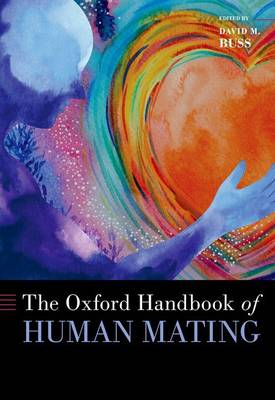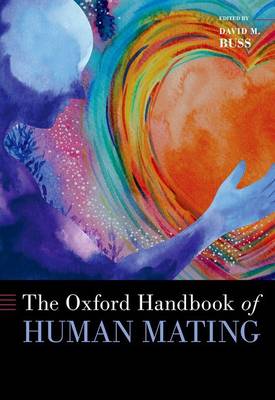
- Afhalen na 1 uur in een winkel met voorraad
- Gratis thuislevering in België vanaf € 30
- Ruim aanbod met 7 miljoen producten
- Afhalen na 1 uur in een winkel met voorraad
- Gratis thuislevering in België vanaf € 30
- Ruim aanbod met 7 miljoen producten
Zoeken
Omschrijving
The scientific study of human mating has mushroomed over the past three decades, and this growth in turn has generated a proliferation of evolving literature revealing fresh discoveries about mate attraction, mate choice, mate retention, marital satisfaction, jealousy, infidelity, intimate partner violence, breakups, internet dating, cyberstalking, and sexual coercion. In The Oxford Handbook of Human Mating, editor David M. Buss showcases contributions from "the best and the brightest" scientists in the field, providing up-to-date summaries of theories and empirical evidence of the science of human mating strategies. Much of the research in the field is guided by sexual selection theory. Over 150 years after Darwin's proposal of sexual selection theory, it has become the most important overarching theoretical framework for the scientific study of the mating strategies of all sexually reproducing species, including humans. A mountain of research centered around Darwin's classic book has documented the many complexities of human mate competition and mate choice; how these processes differ between the sexes; and how they differ as a function of sex ratio, mate value, social contexts, ovulation cycles, personality characteristics, and cultural norms and mating rituals. Thus, the science is now ripe for a collection of work by eminent scholars in the field. David M. Buss is a leading researcher and pioneer in the study of human mating strategies, and he applies his expertise to the curation of this volume, which includes major sections covering theories of human mating; mate selection and mate attraction; mate competition; sexual conflict in mating; human pair bonding; the endocrinology of mating; and mating in the modern world.
Specificaties
Betrokkenen
- Auteur(s):
- Uitgeverij:
Inhoud
- Aantal bladzijden:
- 864
- Taal:
- Engels
Eigenschappen
- Productcode (EAN):
- 9780197536438
- Verschijningsdatum:
- 27/01/2023
- Uitvoering:
- Hardcover
- Formaat:
- Genaaid
- Afmetingen:
- 186 mm x 256 mm
- Gewicht:
- 1719 g

Alleen bij Standaard Boekhandel
+ 325 punten op je klantenkaart van Standaard Boekhandel
Beoordelingen
We publiceren alleen reviews die voldoen aan de voorwaarden voor reviews. Bekijk onze voorwaarden voor reviews.











